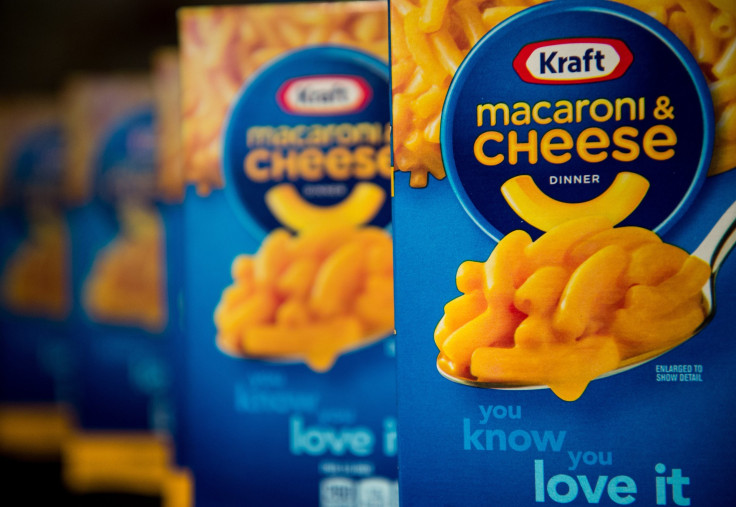Mac And Cheese Unhealthy For Children, Study Finds Toxic Chemicals

Boxed mac and cheese relished by children at the dinner table without a fuss often are considered a savior by parents. But a recent study has found harmful chemicals — banned earlier from babies’ teething toys in the U.S. — in powdered cheese, packed macaroni and other cheese products consumed by kids.
The research released Thursday by the Coalition for Safer Food Processing and Packaging — a group consisting of scientists, parents, consumers, doctors and health and safety advocates — discovered the toxic chemicals, phthalates, in 29 out of 30 cheese products that they conducted the tests on. Phthalates — a group of chemicals used to make plastics — have been linked to genital birth defects in infants and behavior-related problems in older children.
The highest levels of the concentration of the chemical were found in boxed mac and cheese. Coalition for Safer Food Processing and Packaging also set up a campaign against one of the largest cheese brands, Kraft, in the United States, and called it "Kleanup Kraft."
The campaign petition stated: "Most people don’t know that some of Kraft’s cheese products may contain toxic chemicals called phthalates. In fact, phthalates were in eight of the nine items of individual Kraft cheese products we tested, including its iconic Macaroni and Cheese."
A major finding of the study was that the concentration of phthalates was "four times higher in macaroni and cheese powder samples than in hard blocks & other natural cheese, in fat," among the products that were tested.

"Phthalates are ubiquitous chemicals, found in hundreds of personal care, food preparation and cleaning products," said Jeanne Conry, MD, PhD, Past President, The American Congress of Obstetricians and Gynecologists, who is a part of the campaign. "As an obstetrician gynecologist I am worried about their link to birth defects, with developmental or reproductive impacts."
A New York Times report about the recent study said the harmful chemical was not banned from food products in the U.S. However, the article cited a 2014 report by the Consumer Product Safety Commission (CPSC) that mentioned federal agencies were asked to consider the chemical's risk "with a view to supporting risk management steps."
Read: Kraft Removing Synthetic Colors From Iconic Mac And Cheese
The CPSC banned six types of phthalates in children's toys around a decade ago. In the CPSC report, scientists said the chemical posed a health hazard. Babies, toddlers and pregnant women are the ones who are most vulnerable.
Prenatal consumption or exposure to some phthalates has an adverse impact on brain development among babies, and it is also responsible for learning and behavior issues among infants and older adults. Some phthalates have been linked to genital birth defects and they might lead to an increase in the risk of testicular cancer and lower fertility, according to Prevent Harm, an organization that helps to prevent the consumption of toxic chemicals in everyday life. The non-profit is also a part of the campaign by Coalition for Safer Food Processing and Packaging.
These Endocrine Disrupting Chemicals adversly affect the functioning of the endocrine (or harmone) system. Referring to various studies, international medical organization Endocrine Society on its official website mentioned all humans have detectable level of EDCs in blood, urine, placenta, or other body tissues. The EDCs cannot be completely avoided, however, with informed choices, the exposure to these chemicals can be reduced.
© Copyright IBTimes 2025. All rights reserved.






















